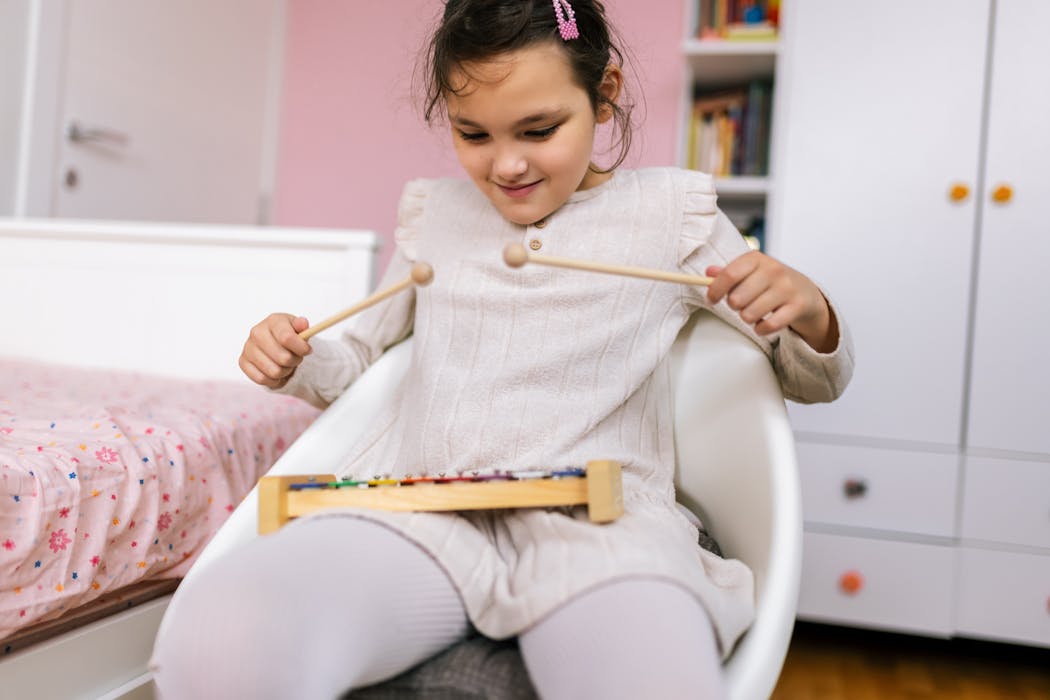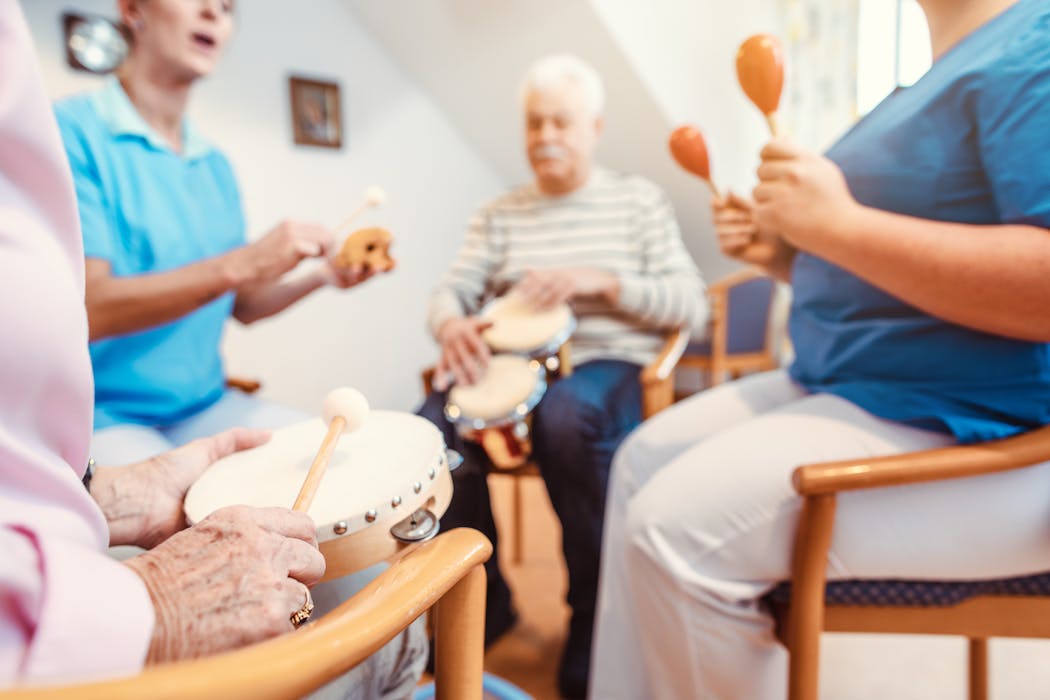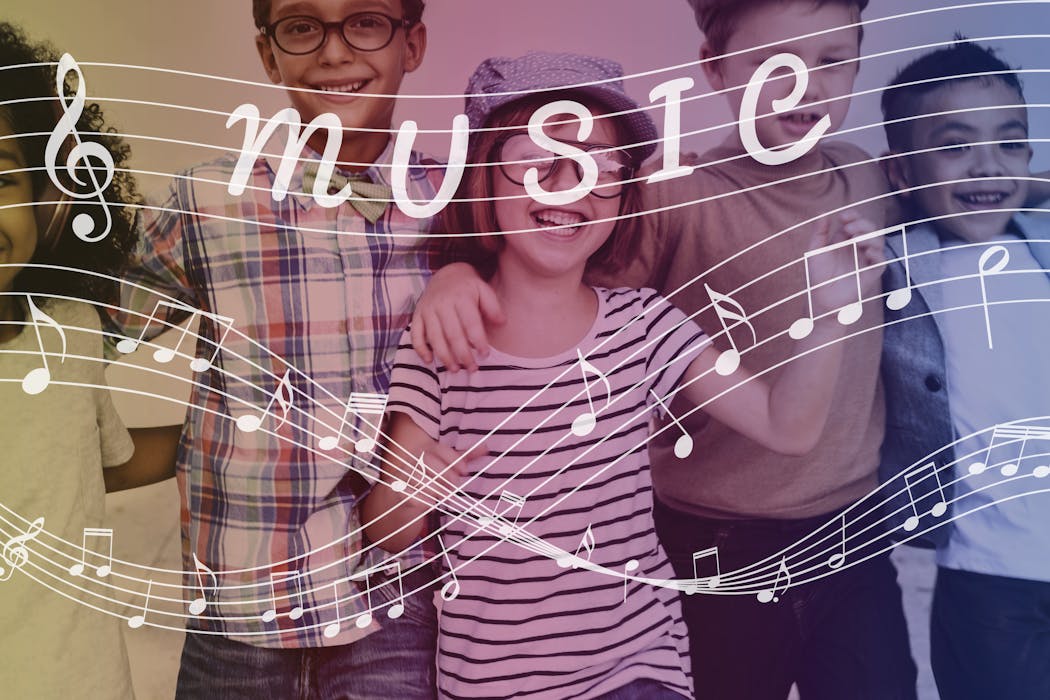Music-based therapy has a long and rich history, dating back to ancient civilizations such as the Greeks, Egyptians, and Chinese, who used music as a healing tool. The use of music as a therapeutic intervention can be traced back to the writings of Aristotle and Plato, who believed in the power of music to influence emotions and behavior. In the Middle Ages, music was used in hospitals to soothe patients and promote healing. However, it wasn’t until the 20th century that music-based therapy began to be formally recognized as a legitimate form of therapy. In the 1940s and 1950s, musicians and healthcare professionals began to explore the use of music as a therapeutic tool for patients with physical and mental health conditions. Today, music-based therapy is widely recognized as an effective form of therapy that can be used to address a wide range of physical, emotional, and cognitive needs.
Music-based therapy has evolved over the years to encompass a wide range of techniques and approaches, including music listening, songwriting, improvisation, and music performance. The field has also expanded to include a variety of settings, including hospitals, schools, nursing homes, and community centers. Music-based therapy is now used to address a wide range of physical and mental health conditions, including autism, dementia, depression, anxiety, and chronic pain. The field continues to grow and evolve as researchers and practitioners continue to explore the potential of music as a therapeutic tool.
The Benefits of Music-Based Therapy
Music-based therapy offers a wide range of benefits for individuals with physical and mental health conditions. One of the key benefits of music-based therapy is its ability to reduce stress and anxiety. Listening to music has been shown to lower cortisol levels, reduce heart rate, and promote relaxation. Music-based therapy can also improve mood and emotional well-being. Research has shown that music can stimulate the release of dopamine, a neurotransmitter associated with pleasure and reward, which can help improve mood and reduce symptoms of depression. In addition, music-based therapy can improve cognitive function. Playing an instrument or engaging in musical activities can help improve memory, attention, and executive function. Music-based therapy can also improve physical health. For example, music can be used to promote physical rehabilitation and improve motor skills in individuals with physical disabilities.
Another benefit of music-based therapy is its ability to improve social skills and communication. Music can be used as a tool to facilitate social interaction and promote a sense of community. For example, group music-making activities can help individuals with autism or social anxiety develop social skills and build relationships with others. Music-based therapy can also improve self-expression and creativity. Engaging in musical activities such as songwriting or improvisation can help individuals express themselves in new ways and explore their creativity. Overall, music-based therapy offers a wide range of benefits for individuals with physical and mental health conditions, including stress reduction, improved mood, enhanced cognitive function, improved physical health, improved social skills, and increased self-expression.
Different Approaches to Music-Based Therapy
There are several different approaches to music-based therapy, each with its own unique techniques and goals. One approach to music-based therapy is receptive music therapy, which involves listening to music with specific therapeutic goals in mind. Receptive music therapy can involve listening to calming music to reduce stress and anxiety or listening to energizing music to improve mood and motivation. Another approach to music-based therapy is active music therapy, which involves engaging in musical activities such as playing instruments, singing, or songwriting. Active music therapy can be used to improve motor skills, cognitive function, and emotional well-being. Another approach to music-based therapy is improvisational music therapy, which involves creating music in the moment without a predetermined structure or plan. Improvisational music therapy can be used to promote self-expression, creativity, and emotional release.
Another approach to music-based therapy is neurologic music therapy, which involves using specific musical techniques to address neurological conditions such as stroke, Parkinson’s disease, or traumatic brain injury. Neurologic music therapy can be used to improve motor function, speech production, and cognitive function in individuals with neurological conditions. Another approach to music-based therapy is developmental music therapy, which involves using musical activities to address developmental goals in children with developmental delays or disabilities. Developmental music therapy can be used to improve communication skills, social skills, motor skills, and cognitive function in children with developmental delays. Overall, there are several different approaches to music-based therapy, each with its own unique techniques and goals.
Case Studies: Success Stories of Music-Based Therapy Programs
There are numerous success stories of music-based therapy programs that have had a positive impact on individuals with physical and mental health conditions. For example, a study published in the Journal of Music Therapy found that group drumming activities improved mood and reduced stress in individuals with depression. Another study published in the Journal of Alzheimer’s Disease found that listening to familiar music improved memory and cognitive function in individuals with Alzheimer’s disease. In addition, a study published in the Journal of Pain Research found that listening to music reduced pain levels in individuals with chronic pain. These studies highlight the potential of music-based therapy to improve mood, cognitive function, and physical health in individuals with a wide range of conditions.
Another success story of music-based therapy is the use of music therapy in palliative care settings. Music-based therapy has been shown to improve quality of life and reduce symptoms such as pain and anxiety in individuals receiving palliative care. For example, a study published in the Journal of Palliative Medicine found that live music interventions reduced pain levels and improved mood in individuals receiving palliative care. Another success story of music-based therapy is its use in autism treatment. Music-based therapy has been shown to improve social skills, communication skills, and emotional well-being in individuals with autism. For example, a study published in the Journal of Autism and Developmental Disorders found that group singing activities improved social skills and communication skills in children with autism. These success stories highlight the potential of music-based therapy to improve quality of life and well-being in individuals with physical and mental health conditions.
How Music-Based Therapy Programs are Implemented
Music-based therapy programs are implemented in a variety of settings, including hospitals, schools, nursing homes, and community centers. In hospitals, music-based therapy programs are often used to address physical rehabilitation goals such as improving motor skills or reducing pain levels. For example, individuals recovering from a stroke may engage in drumming activities to improve motor function or listen to calming music to reduce stress levels. In schools, music-based therapy programs are often used to address developmental goals such as improving communication skills or social skills in children with developmental delays or disabilities. For example, children with autism may engage in group singing activities to improve social skills or engage in improvisational activities to promote self-expression.
In nursing homes, music-based therapy programs are often used to address emotional well-being goals such as reducing symptoms of depression or anxiety. For example, individuals with dementia may listen to familiar music from their past to improve mood or engage in group singing activities to promote social interaction. In community centers, music-based therapy programs are often used to address a wide range of goals such as improving cognitive function or promoting creativity. For example, individuals with mental health conditions may engage in songwriting activities to express themselves or engage in improvisational activities to explore their creativity. Overall, music-based therapy programs are implemented in a variety of settings to address a wide range of physical and mental health needs.
The Role of Music in Healing and Recovery
Music plays a powerful role in healing and recovery for individuals with physical and mental health conditions. Music has the ability to evoke emotions, memories, and physical responses that can promote healing and well-being. For example, listening to calming music can reduce stress levels and promote relaxation, which can aid in the healing process for individuals recovering from surgery or illness. In addition, engaging in musical activities such as playing an instrument or singing can promote physical rehabilitation by improving motor skills and coordination.
Music also plays a role in emotional healing by providing an outlet for self-expression and creativity. Engaging in musical activities such as songwriting or improvisation can help individuals express their emotions in new ways and explore their creativity. Music can also provide comfort and support during difficult times by evoking positive emotions and memories. For example, listening to familiar music from one’s past can provide a sense of familiarity and connection during times of distress or illness.
The Future of Music-Based Therapy: Innovations and Research
The future of music-based therapy looks promising as researchers continue to explore new innovations and techniques for using music as a therapeutic tool. One area of innovation is the use of technology in music-based therapy. For example, virtual reality technology is being used to create immersive musical experiences for individuals with physical disabilities or neurological conditions. Virtual reality technology can create interactive musical environments that promote physical rehabilitation or cognitive stimulation.
Another area of innovation is the use of personalized music playlists for individuals with dementia or Alzheimer’s disease. Research has shown that listening to familiar music from one’s past can improve memory and cognitive function in individuals with dementia. Personalized music playlists are being used to create individualized musical experiences that evoke positive emotions and memories for individuals with dementia.
In addition, researchers are exploring the use of neuroimaging techniques such as fMRI to study the effects of music on the brain. Neuroimaging studies have shown that listening to music activates multiple areas of the brain involved in emotion processing, memory retrieval, and motor coordination. Understanding the neural mechanisms underlying the effects of music on the brain can help researchers develop more targeted and effective music-based therapy interventions.
Overall, the future of music-based therapy looks promising as researchers continue to explore new innovations and techniques for using music as a therapeutic tool. As our understanding of the effects of music on the brain and body continues to grow, we can expect to see new developments in the field of music-based therapy that will further enhance its effectiveness as a form of therapy for individuals with physical and mental health conditions.
In conclusion, music-based therapy has a long history dating back to ancient civilizations such as the Greeks and Egyptians who recognized the healing power of music. Today, music-based therapy is widely recognized as an effective form of therapy that can be used to address a wide range of physical, emotional, and cognitive needs. Music-based therapy offers numerous benefits including stress reduction, improved mood, enhanced cognitive function, improved physical health, improved social skills, increased self-expression among others.
There are several different approaches to music-based therapy including receptive music therapy which involves listening to specific therapeutic goals; active music therapy which involves engaging in musical activities; improvisational music therapy which involves creating music without predetermined structure; neurologic music therapy which uses specific musical techniques for neurological conditions; developmental music therapy which uses musical activities for developmental goals among others.
There are numerous success stories of how music-based therapy programs have had a positive impact on individuals with physical and mental health conditions including improving mood reducing stress levels among others.
Music-based therapy programs are implemented in various settings including hospitals schools nursing homes community centers among others.
Music plays a powerful role in healing by evoking emotions memories physical responses among others.
The future of music-based therapy looks promising as researchers continue exploring new innovations such as using technology personalized playlists neuroimaging techniques among others.
In conclusion,music-based therapy offers numerous benefits for individuals with physical mental health conditions it has evolved over time into various approaches it has numerous success stories it is implemented across various settings it plays a powerful role in healing recovery its future looks promising with ongoing research innovations.
In conclusion, music-based therapy offers numerous benefits for individuals with physical and mental health conditions. It has evolved over time into various approaches and has numerous success stories. It is implemented across various settings and plays a powerful role in healing and recovery. Its future looks promising with ongoing research and innovations, making it a valuable tool in the field of therapy.
Find out how Torongo Therapyplus can help you with your needs. Get in touch with us at smile@torongo.life, or call us on 02 8809 9965.































